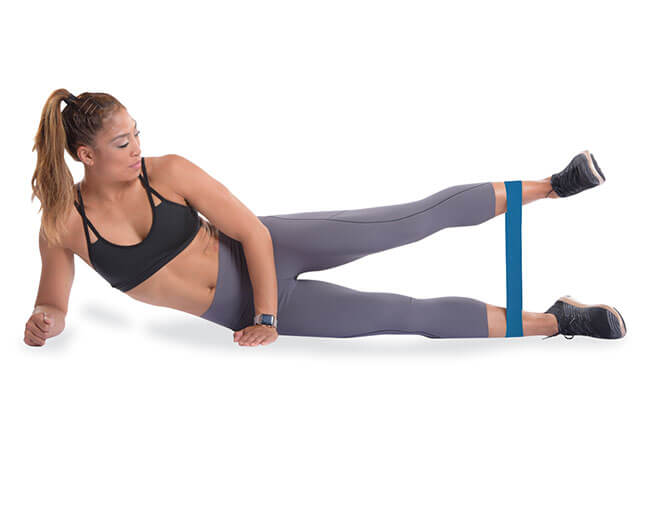Have you ever wondered exactly when you should exercise to get the best results? Knowing the right time to work out can make a big difference in how you feel, how your body responds, and the progress you make.
Whether you want more energy, better focus, or faster fat loss, timing your exercise correctly can unlock these benefits for you. Keep reading, and you’ll discover simple yet powerful tips to help you decide when to use exercise in your daily routine for maximum impact.
Your body—and mind—will thank you.

Credit: fitnesscfgyms.com
Benefits Of Timing Workouts
Timing your workouts can change the results you get from exercise. Choosing the right time helps your body work better. It can boost your energy, improve your metabolism, and speed up recovery. Understanding these benefits helps you plan exercise that fits your goals.
Impact On Performance
Exercise performance varies by time of day. Many people have more strength and focus in the afternoon. This means lifting weights or running may feel easier. Your body temperature is higher later in the day, helping muscles move better. Picking a time when you feel strongest can improve results.
Effects On Metabolism
Workout timing affects how your body burns calories. Morning exercise may boost metabolism for hours after. This helps burn more fat during the day. Evening workouts can also raise metabolism but may affect sleep. Choose a time that keeps your metabolism active without causing rest problems.
Influence On Recovery
Recovery depends on when you exercise and rest. Working out too close to bedtime may slow muscle repair. Morning or midday workouts allow more time to recover before sleep. Proper timing helps reduce soreness and injury risk. It gives your body enough time to heal and grow stronger.
Morning Exercise Advantages
Exercising in the morning offers many benefits for body and mind. Starting your day with movement sets a positive tone. It helps wake up your muscles and mind. Morning workouts can improve your overall health and mood.
Boosting Energy For The Day
Morning exercise raises your heart rate and blood flow. This increase sends more oxygen to your brain and muscles. You feel more awake and ready to start tasks. Energy levels stay higher throughout the day. It helps fight morning sluggishness without caffeine.
Enhancing Fat Burn
Exercising early can improve fat burning. Your body uses stored fat for energy after overnight fasting. Morning workouts tap into these fat reserves first. This helps reduce body fat over time. It also kickstarts your metabolism for the whole day.
Improving Mental Focus
Physical activity sharpens your mind and concentration. Morning exercise clears away sleep fog quickly. It boosts chemicals in the brain that improve mood and alertness. You can think more clearly and work better. Focus stays strong during meetings or study sessions.
Afternoon Workout Perks
Afternoon workouts offer many benefits for your body and mind. Your energy tends to be higher than in the morning. Your body temperature also rises, which helps muscles work better. This makes afternoon a great time to exercise and get good results.
Peak Muscle Function
Muscles perform their best in the afternoon. They are warmer and more flexible after moving around all day. This reduces the chance of injury during exercise. Stronger muscle function means better movement and less soreness.
Increased Strength And Endurance
Your strength levels grow in the afternoon. The body uses energy more efficiently at this time. Endurance improves, so you can work out longer without feeling tired. This helps build muscle and burn more calories.
Better Coordination
Coordination improves in the afternoon. Your brain and muscles communicate more smoothly. This helps with balance and control during exercise. Better coordination lowers the risk of accidents and improves your workout quality.
Evening Exercise Benefits
Exercising in the evening has many benefits for the body and mind. It can help you relax after a busy day. Evening workouts also support better sleep and help your muscles stay flexible. Here are some key benefits of exercising later in the day.
Stress Relief
Evening exercise helps lower stress levels. Physical activity releases chemicals that make you feel good. It also helps clear your mind and reduce tension. Moving your body after work can calm your thoughts and improve your mood.
Improved Sleep Quality
Working out in the evening can lead to deeper sleep. Exercise makes your body tired in a healthy way. This helps you fall asleep faster and stay asleep longer. A good night’s rest boosts energy and focus for the next day.
Flexibility And Mobility Gains
Muscles are warmer and more flexible in the evening. Stretching and moving at this time can increase your range of motion. Regular evening exercise helps joints stay healthy and reduces stiffness. This makes everyday movements easier and less painful.
Matching Exercise To Goals
Matching exercise to your goals helps you get the best results. Different goals need different exercise times and plans. Choosing the right time and type of exercise makes your efforts more effective. It also keeps you motivated and reduces the risk of injury.
Weight Loss Timing Tips
Exercise before meals can help burn more fat. Morning workouts increase metabolism for the whole day. Fasted cardio, like walking or light jogging, works well before breakfast. Avoid heavy meals right before exercise to feel comfortable. Consistency matters more than exact timing for weight loss.
Muscle Building Windows
Strength training is best done when your energy is high. Midday or afternoon workouts suit many people for muscle growth. After exercise, eat protein within 30 to 60 minutes. This helps muscles repair and grow stronger. Rest days are important to let muscles recover fully.
Endurance Training Schedules
Long runs or rides work well in the morning or early evening. Cooler temperatures improve endurance performance and comfort. Plan easy days after hard workouts to avoid burnout. Hydration and balanced meals support longer training sessions. Gradually increase time and intensity to build stamina safely.

Credit: www.menshealth.com
Individual Factors To Consider
Choosing the best time to exercise depends on many personal factors. Everyone’s body and daily life are different. These differences affect the best time to work out. Paying attention to your unique needs helps you get the most from exercise. The following sections explain key individual factors to think about.
Chronotype And Energy Levels
People have different natural rhythms called chronotypes. Some feel more awake in the morning, others later in the day. Your energy peaks affect how well you perform during exercise. Morning people may enjoy early workouts. Night owls might find evening sessions better. Matching exercise time to your energy levels improves focus and strength.
Work And Lifestyle Constraints
Work hours and daily tasks influence workout timing. Busy schedules might limit your exercise options. Some prefer short sessions during breaks or after work. Family duties can affect available time too. Planning exercise around your daily life keeps it consistent. Flexibility in timing helps maintain regular workouts.
Nutrition And Hydration Timing
Eating and drinking habits impact exercise timing. Exercising on a full stomach can cause discomfort. Light meals or snacks before workouts give energy without heaviness. Staying hydrated before, during, and after exercise is important. Proper nutrition and hydration support better performance and recovery.
Tips For Consistent Timing
Keeping a steady exercise time helps your body and mind adjust. It builds good habits. Sticking to a schedule makes workouts easier and more effective. Here are tips to keep your exercise timing consistent.
Creating A Routine
Pick a time that fits your daily life. Morning, afternoon, or evening—choose what feels best. Do your workout at this time every day. This helps your body get used to the schedule. Try to prepare your gear the night before. It saves time and removes excuses.
Adapting To Changes
Life can be unpredictable. Sometimes plans change, and that’s okay. Move your workout to another time on the same day. Keep the habit alive, even if the time shifts. Stay flexible but focused on consistency. Small changes won’t break your progress.
Tracking Progress
Write down your workout times and activities. Use a journal or a simple app. Seeing your progress motivates you to keep going. Notice patterns in your energy and performance. Adjust your schedule if needed to match your best times. Tracking helps you stay on track and improve.

Credit: kingsfieldfitness.com
Frequently Asked Questions
When Is The Best Time To Use Exercise For Weight Loss?
The best time to use exercise for weight loss is consistently throughout the week. Regular workouts boost metabolism and burn calories efficiently. Combining cardio and strength training maximizes fat loss and muscle tone. Timing matters less than consistency and intensity for effective weight loss.
How Often Should I Use Exercise For Mental Health Benefits?
Using exercise 3 to 5 times weekly helps improve mental health. Physical activity releases endorphins, reducing stress and anxiety. Even moderate workouts like walking or yoga can boost mood. Consistency is key to long-term mental wellness through exercise.
When Should Beginners Start Using Exercise Safely?
Beginners should start using exercise by choosing low-impact activities. Begin with 10 to 15 minutes per session, gradually increasing duration. Warm-up and cool-down are essential to prevent injury. Consulting a healthcare professional before starting is recommended for safety.
When To Use Exercise To Improve Cardiovascular Health?
Exercise should be used at least 150 minutes weekly to improve heart health. Moderate-intensity activities like brisk walking strengthen the cardiovascular system. Regular workouts lower blood pressure and reduce heart disease risk. Consistency and variety enhance cardiovascular benefits.
Conclusion
Exercise helps your body stay strong and healthy. Use it to boost energy and improve mood. It works best when done regularly and at the right time. Even short sessions can make a difference. Choose activities you enjoy to keep going.
Listen to your body and rest when needed. Small steps lead to big changes over time. Staying active supports both your mind and body every day.
